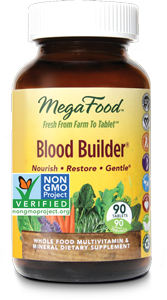Supplement industry moves to go non-GMO
By Ken Roseboro
Published: July 31, 2013
Category: Non-GMO Ingredients
Non-GMO Future conference addresses challenges and opportunities of verifying nutritional supplements and vitamins as non-GMO
With growing consumer awareness of the risks of genetically modified foods, manufacturers of nutritional supplements are starting to put their products through Non-GMO Project verification to meet consumer demands.
Moving the supplement industry to becoming non-GMO was the theme of a recent conference, “The Non-GMO Future,” organized by the United Natural Products Alliance (UNPA).
Lags behind food industry in non-GMO production
In his opening remarks, UNPA executive director Loren Israelsen said “The supplement industry lags behind food industry on being non-GMO.”
He encouraged supplement manufacturers to learn about the advantages of the Non-GMO Project Verified label, which he said “is the fastest growing label in the natural food industry.”
Steve Hoffman, managing director of Compass Natural, LLC said that Whole Foods Market reported sales increases of 15% - 30% for Non-GMO Project Verified products.
He said Whole Foods’ recent commitment to label all GMO products in its stores by 2018 is having a major impact. “Other retailers are following Whole Foods’ labeling commitment.”
Courtney Pineau, assistant director of the Non-GMO Project, said the number of inquiries that the Project has received since Whole Foods’ announcement has grown four-fold.
She said there are now 10,000 Non-GMO Project Verified products from 600 brands.
Complicated supply chain
Sandy Kepler, vice president, Food Chain Global Advisors, described the challenges facing supplement manufacturers in becoming non-GMO verified.
“The supplement industry has a complicated supply chain. (Becoming verified is) not impossible but it can be challenging,” she said.
Some of those challenges include tracing the origins of vitamins such as a B-complex and citric acid, which is made from GM corn or sugar beets and can be difficult to test for GM material.
Supplement ingredients that have GMO-risk include solvents, carriers, standardization materials, and acidifiers.
Kepler discussed strategies to minimize GMO risk such as using low-risk ingredient sources like a tapioca-based maltodextrins instead of corn-based, which could be GMO.
Enzymes also have GMO risk particularly if they are extracted from papaya, which has been genetically modified. In addition, enzymes are often produced using GMO microorganisms and substrates.
To be non-GMO verified, Kepler said “Enzymes have to be produced using non-GMO microorganisms.”
Vitamins that may be produced using GM microorganisms include B12, B2, ascorbic acid, and beta carotene, while tocopherols are GMO-risk because they are made from soy.
Other GMO-risk supplement ingredients include manufacturing additives such as gel-caps, gelatins, flow agents, and lactose, dairy and other animal derivatives.
“The process of verifying supplements as non-GMO is very rigorous and can be frustrating and lengthy,” Kepler said.
She recommended investigating the verification process before enrolling to assess challenges, focusing on a few products to verify initially, formulating products with non-GMO verification in mind, and avoiding GMO-risk additives whenever possible. She also encouraged the industry to work together to facilitate non-GMO verification for everyone.
Despite the challenges of verifying supplements as non-GMO, Kepler encouraged manufacturers. “We want to help everyone who wants to be non-GMO,” she said.
Being a non-GMO supplement manufacturer is not easy
Robert Craven, CEO of FoodState, which produces MegaFood supplements, gave a supplement manufacturers’ perspective on non-GMO verification.
“This is an important and complex topic,” Craven said. “Being a non-GMO supplement manufacturer is not easy. We’ve had to reject raw materials because the Non-GMO Project standard is very high. The supply community is not there yet.”
Craven highlighted the difference between the number of ingredients in Fritos corn chips and a MegaFood supplement. “The difference in complexity between food and supplements is huge,” he said.
For example, MegaFood must get documentation from suppliers that the sheep whose hair is used to produce vitamin D3 are not cloned. “We are a small company buying small amounts of raw materials. To get documents from supplier is a challenge,” he said.
Overall, Craven said: “the supplement industry is not there yet” with regard to being non-GMO.
Still, he said MegaFood is committed to non-GMO verifying all of its products.
The ultimate goal, Craven said, is to move away from a GMO approach to food production. “We want to get back to a system of agriculture that is healthier for people and the planet,” he said.
© Copyright The Organic & Non-GMO Report, July/August 2013





